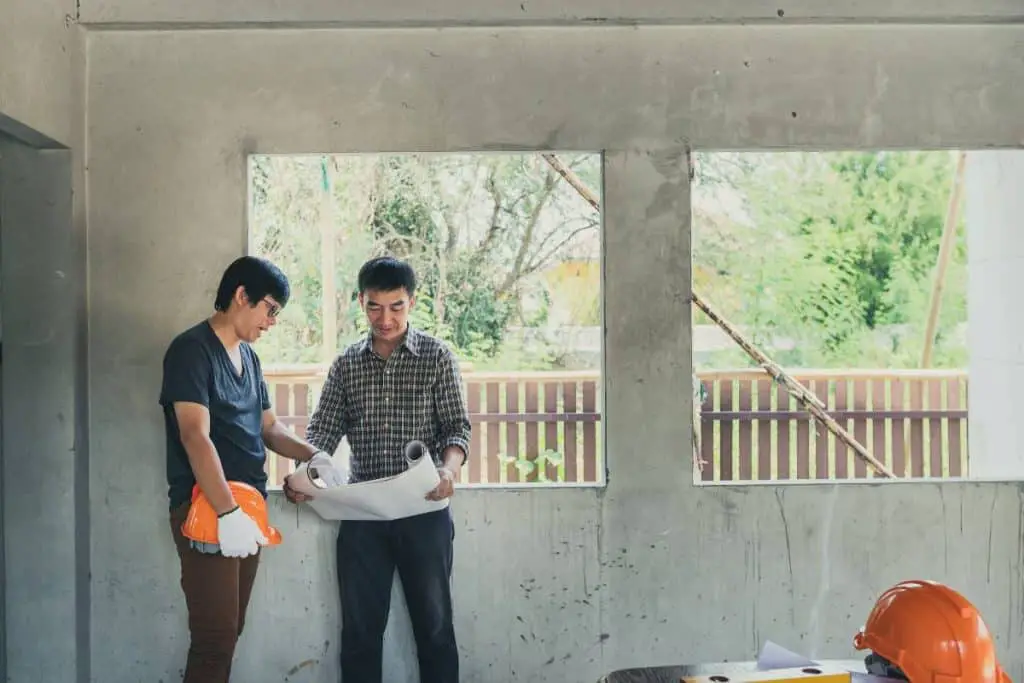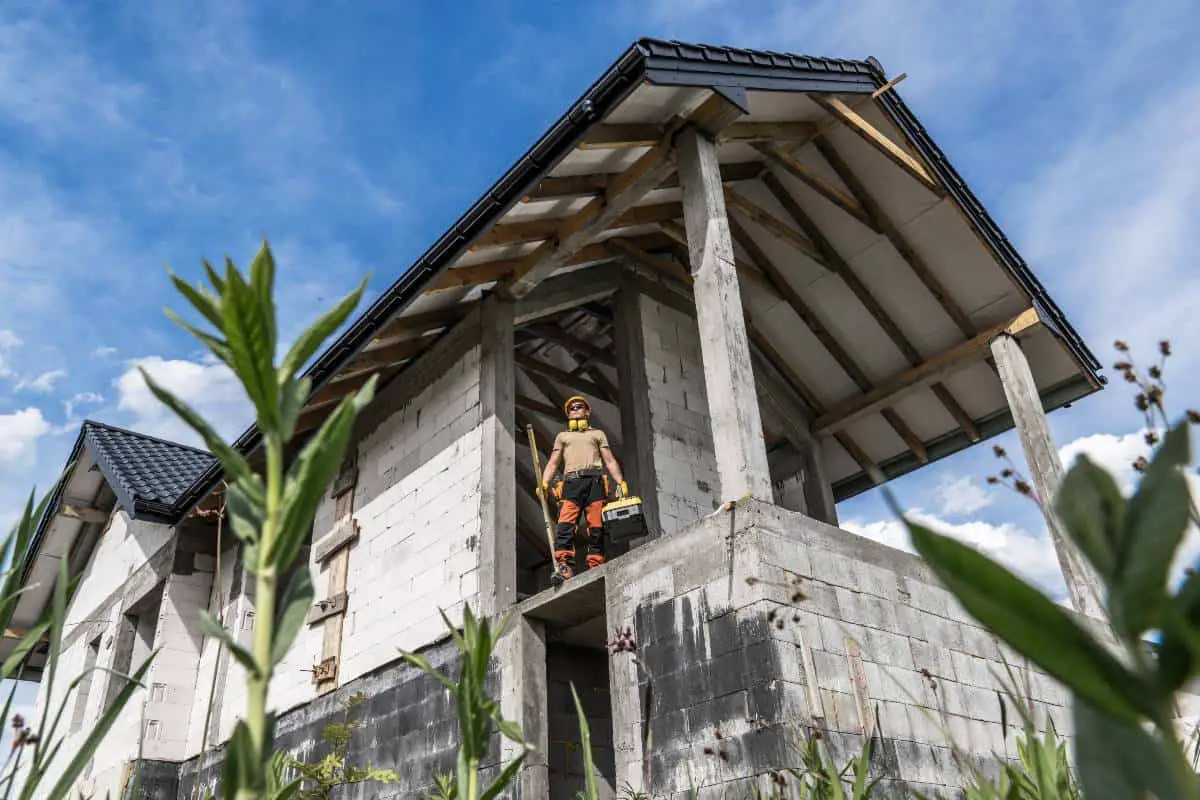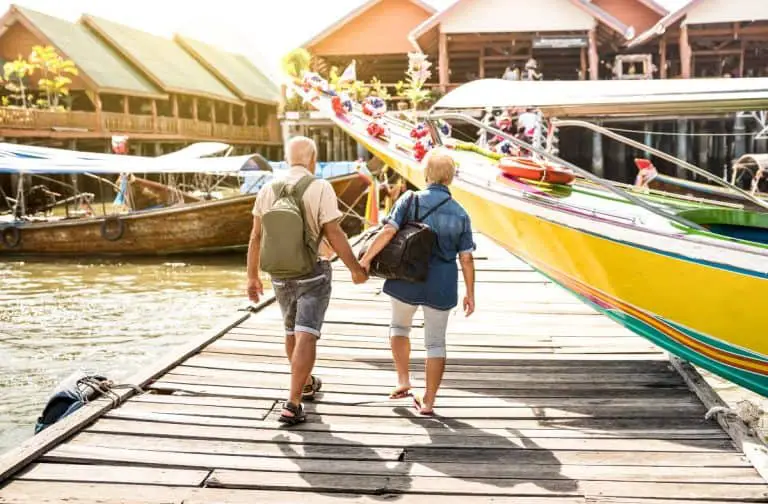A Guide to Renovating A Property In Thailand: Costs & Tips
Hey there! After recently renovating a property in Thailand, I wanted to share what I’ve learned along the way. While I’m no expert, I discovered that the construction market here is growing fast (projected to hit USD 182.41 billion by 2030!), and more folks like us are taking on renovation projects. If you’re thinking about renovating a property in Thailand, I’ll share my experience – including the mistakes I made and what actually worked – to help make your journey a bit smoother than mine was!
Key Takeaways
- Property renovation in Thailand requires careful planning and understanding of local regulations, with building permits and contractor selection being crucial first steps
- The Thai home improvement market is valued at 4.9 billion euros (2022), with most renovation budgets ranging from 110,000 to 300,000 baht
- Working with verified contractors and maintaining proper documentation can save significant time and money while ensuring quality results
Legal Framework and Documentation
When I first started, I quickly learned that understanding the legal requirements is crucial. The Building Control Act governs all construction and renovation activities, and you’ll need several key documents:
- Building permits from the Bor Tor (local authority)
- Property registration documentation
- Land title deed verification
For foreign property owners, there are additional considerations. I always recommend getting a good legal consultant to help navigate these requirements, as regulations can vary by location and property type.
Planning Your Renovation
I’ve learned through the years that proper planning is your best friend. With our real estate market growing at 1.17% annually (2024-2028), smart renovation decisions are more important than ever.
Property Assessment
Start with a thorough inspection of your condos or properties. I always recommend hiring a professional inspector to check structural elements, electrical systems, and plumbing. This small upfront cost can save you from expensive surprises later.
Budget Planning
Most Thai renovations fall between 110,000-300,000 baht for basic work, while luxury renovations often exceed this range. Here’s my golden rule: always add 15-20% to your initial budget for unexpected issues. From my experience, this buffer has saved many projects from costly delays.
Market Research
Take time to understand your local market. Bangkok, Phuket, and Chiang Mai each have different preferences and value drivers. Research recent sales and popular features in your area to ensure your renovation adds real value to your property.
Proper planning might take time initially, but it’s the foundation for a successful renovation project. I’ve seen this approach save both time and money for countless property owners in Thailand.
Contractor Selection and Management
Finding a reputable contractor can make or break your condo or property renovation plans in Thailand.
Verification Process
Research at least three contractors and verify their credentials. I always request licenses, insurance, and past project portfolios. Pay special attention to projects similar to yours in scale and style.
Communication Strategy
Set up clear communication channels from day one. I recommend using messaging apps popular in Thailand like Line for daily updates while keeping formal documentation via email. If you’re not fluent in Thai, invest in a good translator or project manager.
Contract Essentials
Your contract should detail payment schedules, timelines, and quality standards. Include a defect liability period – I typically negotiate for 12 months. Never pay more than 30% upfront.
Sustainable Renovation Practices
Energy Efficiency
In Thailand’s tropical climate, energy efficiency isn’t just environmentally friendly – it’s essential for reducing costs. I’ve found that investing in double-glazed windows and proper insulation can significantly reduce air conditioning costs. Modern energy-efficient appliances might cost more initially but pay for themselves through lower electricity bills.
Water Conservation
Thailand’s distinct wet and dry seasons make water management crucial. Installing water-saving fixtures and considering rainwater harvesting systems can dramatically reduce your water consumption. During my home renovations, these implementations have typically reduced water bills by up to 40%.
Local Materials
I’ve learned to appreciate the wisdom of using local materials. They’re not just more affordable and readily available – they’re often better suited to Thailand’s climate. Local hardwoods, for instance, tend to handle humidity better than imported alternatives.
Renovation Process and Best Practices

Project Planning
Meticulous planning is required for renovating a property in Thailand. Start with demolition and structural work, then move to electrical and plumbing. Only after these foundations are solid should you proceed with walls, flooring, and finishing work. This sequence has proven most efficient in my experience.
Quality Control
Daily progress checks are essential. I make it a point to document everything with photos and maintain a detailed log. This attention to detail has prevented countless disputes and ensures work meets standards.
Smart Home Integration
The Thai property market is rapidly modernizing. Consider integrating smart climate control systems and security features into your condo renovation. These additions not only enhance livability but can significantly increase property value.
Cost-Effective Renovation Strategies
Budget Allocation
Focus your resources where they’ll have the most impact. I typically recommend allocating about 30% of your budget to the kitchen, as it often offers the best return on investment. Bathrooms and living spaces should receive the next largest portions of your budget, as these areas significantly influence property value.
Strategic Timing
Timing can dramatically affect your renovation costs in Thailand. Planning work during the dry season reduces weather-related delays. Purchasing materials during sale periods can lead to substantial savings. I’ve found that combining similar tasks also helps optimize labor costs.
Post-Renovation Considerations
Maintenance Approach
Regular maintenance especially if your properties are condominiums is crucial in Thailand’s climate. I recommend monthly basic checks of all systems, particularly air conditioning and plumbing. More thorough inspections should happen before and after the rainy season to prevent any water-related issues.
Documentation Management
Maintain comprehensive records of your renovation. This includes all warranties, contractor details, and material specifications. I keep digital copies of everything – it’s invaluable when planning future updates or if you decide to sell.
Financial Planning
Based on my experience, setting aside 1% of your property’s value annually for maintenance ensures you can address issues promptly. This proactive approach has consistently proven to be more cost-effective than reactive maintenance.
FAQs
What permits do I need for renovation in Thailand?
How long does a typical renovation take in Thailand?
Can foreigners manage renovation projects directly?
What’s the average cost per square meter for renovation?
How do I verify a contractor’s credentials?
Conclusion
Living in Thailand and managing property renovations can feel overwhelming at first. However, with proper planning and the right team, transforming your space can be a rewarding experience. Whether you’re renovating for personal use or investment, there are many resources and professionals available to help guide you through the process. If you have any questions about life in Thailand or would like to learn more about my experiences as a Thai-American living here, feel free to reach out. I’m happy to share what I’ve learned about navigating both the cultural and practical aspects of making Thailand your home.






